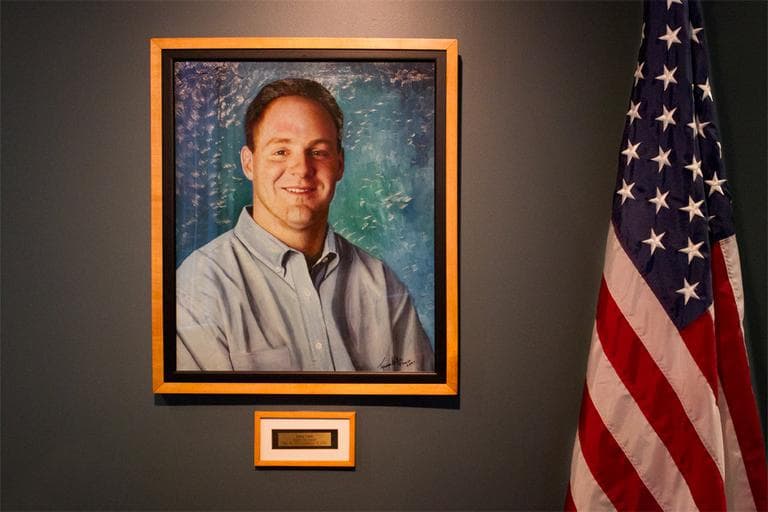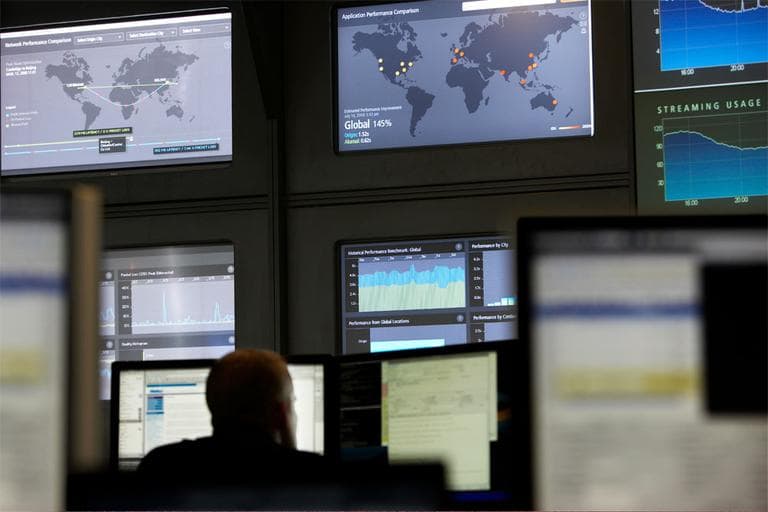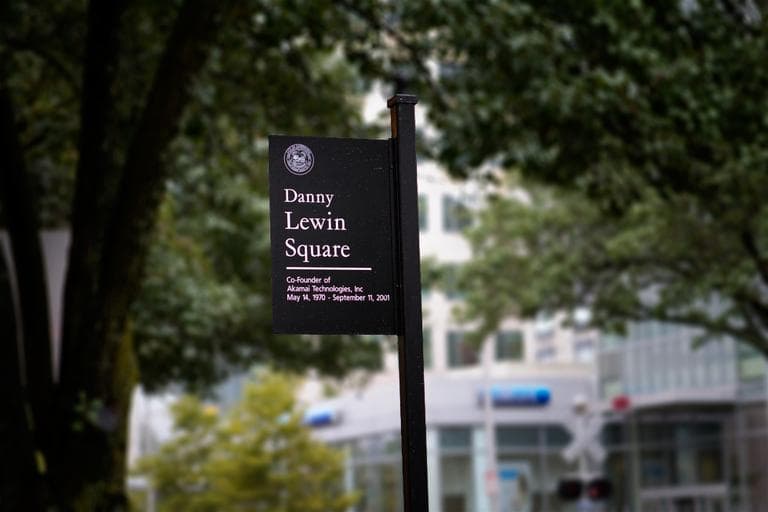Advertisement
Cambridge Co. Keeps Founder's Spirit Alive After 9/11
Resume
It doesn’t surprise anybody who knew Daniel Lewin that he would step in front of what was happening on American Airlines Flight 11.
Lewin was sitting one row behind Mohammed Atta and apparently tried to stop the terrorists as they were taking control. Flight attendants who phoned airline officials from the plane reported that Lewin’s throat was slashed, probably by another terrorist one row behind him.
"I’m sure at some point it became clear to him what was going on," said Todd Dagres, an investor in Akamai Technologies, the company Lewin co-founded. "And I’m sure he acted. And I’m sure that someone on that plane — maybe more than one — paid. But he couldn’t get them all."
Lewin was always out in front. He was a math wunderkind whose algorithms made the Internet faster. He was a billionaire in his 20s. He was also a former commando.
Lewin's family moved to Israel from Colorado when he was a teenager, where the Israel Defense Forces eventually drafted him.
"And there was no question whether he would serve," remembered friend Marco Greenberg. "And there was no question he would serve in a combat unit. And there was no question in his mind that he would serve in the country’s most elite unit. And that’s what he ended up doing."
Lewin ended up doing everything with that same drive. He studied applied mathematics at the Massachusetts Institute of Technology.
"Oh yeah, Danny stood out," recalled Tom Leighton, Lewin's advisor. "At MIT he stood out!"

Together, Leighton and Lewin developed algorithms and systems to make Internet traffic flow faster and more efficiently.
"In fact, we wanted to get other people to take the technology and use it!" Leighton remembered. "We had to decide, are we gonna let it go, or would we do it ourselves?"
Lewin and Leighton did it themselves. They co-founded Akamai Technologies. One of the executives brought in to help was Paul Sagan, who remembers Danny as an incredibly intense leader.
"He was very demanding, and he was relentless," Sagan said.
Danny would often burst into a room where people were working and tell them: "You’re behind!"
"He had this infectious nature of making you want to take on big challenges and not back down and never quit," Sagan remembered. "Danny was so competitive, and never a quitter. And if you were around that at all, you picked that up."
During the late 1990s, Akamai took the technology world by storm. Wall Street gave the company a blazing initial stock offering. But even before 9/11, the company's fortunes turned for the worse. The dot-com bubble burst. Akamai’s clients were going out of business left and right and couldn’t pay their bills.
It was on Sept. 10, 2001 that Danny Lewin stayed up very late, agonizing over a list of people to let go. The company was going through its second round of layoffs. He got one hour of sleep before he had to get up to get on a plane.
"I was at my desk in Tech Square," remembered Sagan, saying once the news came that it was Flight 11 from Boston, Akamai managers knew that Danny had been lost.
"Because another colleague had been talking to him on his cellphone and he was notorious for talking until the stewardess ripped the phone out of his hands and said: 'Sir, you must turn it off now!' So one of my colleagues knew he was on that plane."
The shock was real. The relentless leader who couldn’t be stopped had been stopped. Danny Lewin was dead at 31 years old.
"And a lot of [Akamai] employees," Sagan recalled, "were like: 'Should we go home, should we stop? What are we supposed to do? It somehow seems wrong to keep working.' And the answer was clearly the opposite."
Sagan said Lewin's vision was that the Internet would become the preeminent way that people communicated and were informed.

"And it was being proven out that day," Sagan said. "And it made it easier — after that initial shock — to say to everybody: 'Do what Danny would want, which was prove the Internet can handle this moment,' and that’s what we did."
Working helped, but it didn’t solve the business crisis — that had worsened.
"We were really extra challenged" by losing the driving personality behind Akamai's technology, Leighton recalled. "Now, on top of everything else: the customer base going broke, the bubble bursting, we’re losing money hand over fist, really one mess after another, and now Danny dies."
Many doubted the company would survive. But Sagan, who would eventually become the CEO, said shutting down the company was not an option.
"That never went through our mind," Sagan said. "Because Danny would never have tolerated that thought."
It took years to become profitable. At the same time executives were making painful choices to stay afloat; they had to figure out how to replace their inspirational leader, without losing his inspiration.
Not quite a year after 9/11, Akamai named its highest employee honor after Lewin.
"This person’s maniacal focus and attention to detail reminds everyone who knew Danny of Danny," announced company president David Kenny recently at the company's 10th annual awards ceremony.
Nowadays, when visitors check in at the front desk of Akamai’s corporate headquarters at Kendall Square, they see a painted portrait of Danny: stocky and smiling.
Ten years after 9/11, Akamai is a $1 billion software company.
"I think we have delivered on Danny’s vision," Leighton said. "I think if you ask him he’d say: 'You’re behind!' He’d always say that, there’s always more we could have done. But we’ve come a long way."
Sagan said it’s difficult today, knowing that the majority of company employees joined Akamai after 9/11 and never knew Danny.
"But I think one of the things we’ve tried to do for the last 10 years is teach people about him," Sagan said. "Share our stories of who he was, and make it an enduring part of a bigger culture.
"And therefore, I think people do get to meet him. And I think they do get to be inspired by him. But it’s just a little harder this way."
Ten years after Lewin died trying to stop the terrorists on American Airlines Flight 11, the company he founded looks back on its success, having done it not just for Danny, but as much as possible, with him.
This program aired on September 8, 2011.
